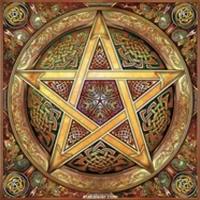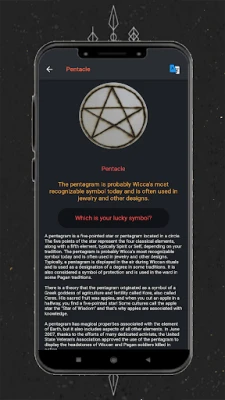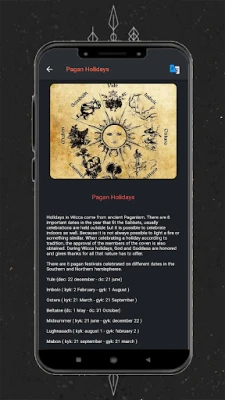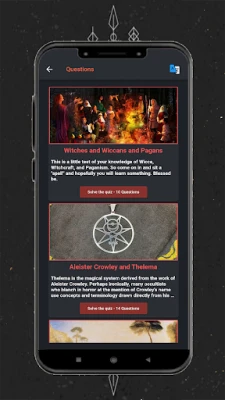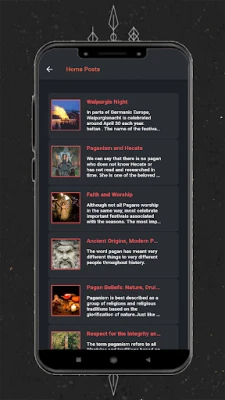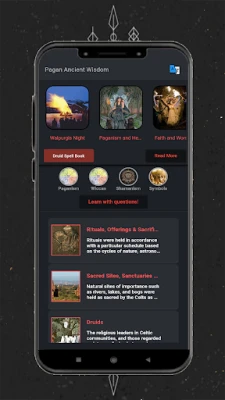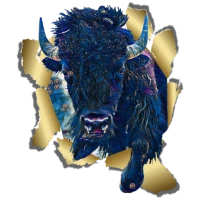
Latest Version
2.0.0
November 09, 2025
bfbilisim
Entertainment
Android
0
Free
com.ancient_secrets.paganism.paganism_ancient_wisdom
Report a Problem
More About Paganism Ancient Wisdom
Exploring Modern Paganism: A Comprehensive Guide to Neopaganism and Ancient Beliefs
Paganism encompasses a diverse range of spiritual practices and beliefs that have evolved over centuries. This article delves into the intricacies of modern Paganism, also known as Neopaganism, alongside ancient pagan traditions. We will explore various movements, polytheistic beliefs, and the rich tapestry of ancient religions that continue to influence contemporary spirituality.
Understanding Paganism: A Historical Overview
The term "paganism" originated in the fourth century AD, coined by early Christians to describe individuals in the Roman Empire who adhered to polytheistic or ethnic religions distinct from Judaism. During this period, those labeled as pagans were often in the minority compared to the burgeoning Christian population. The term itself carried connotations of being a heretic or a follower of the peasantry, reflecting the marginalized status of these belief systems.
Modern Paganism: Neopaganism Defined
Modern Paganism, or Neopaganism, is a contemporary spiritual movement that draws inspiration from pre-Christian religions and nature-oriented spirituality. It encompasses a variety of traditions, including:
- Neo-Druidism: A revival of ancient Druidic practices, focusing on nature worship and the reverence of the earth.
- Wicca: A modern religion that celebrates the divine in both male and female forms, often referred to as the "Triple Goddess" and "The Horned God."
- Hellenism: A revival of ancient Greek religious practices and beliefs.
- Slavic Native Faith: A reconstruction of the pre-Christian beliefs of the Slavic peoples.
- Celtic Reconstructionist Paganism: A movement aimed at reconstructing the ancient Celtic religious practices.
Core Beliefs of Modern Paganism
Most modern pagan religions share a pantheistic, panentheistic, polytheistic, or animistic worldview. While many practitioners honor multiple deities, some identify with a singular divine presence. This diversity reflects the rich heritage of ancient beliefs and the adaptability of modern spirituality.
Exploring Different Pagan Movements
Neopaganism
Neopaganism is a contemporary movement that emphasizes a deep respect for nature and often seeks to revive pre-Christian spiritual practices. Key movements within Neopaganism include:
- Neo-Druidism: Focused on the reverence of nature and the ancient Druids' wisdom.
- Heathenry: A revival of the ancient Norse and Germanic traditions.
- Slavic Native Faith: A movement dedicated to the revival of Slavic pagan practices.
Paleopaganism
Paleopaganism refers to the ancient polytheistic beliefs that existed before the rise of Neopaganism and the influence of the Roman Empire. These traditions were deeply rooted in nature and community.
Mesopaganism
Mesopaganism emerged as a blend of ancient pagan beliefs influenced by monotheistic religions. This category includes spiritual practices from various indigenous cultures, such as Aboriginal Australians and Native Americans, as well as Viking paganism.
Wicca: A Closer Look
Wicca is one of the most well-known modern pagan religions, characterized by its dualistic belief system. Practitioners worship a goddess and a god, often referred to as the "Triple Goddess" and "The Horned God." Wiccans engage in rituals that honor these deities, viewing them as representations of natural forces rather than anthropomorphic beings.
Wiccan Beliefs and Practices
Wicca emphasizes the interconnectedness of all life and the importance of living in harmony with nature. Key aspects of Wiccan practice include:
- Rituals: Ceremonies that celebrate the cycles of nature, such as the Wheel of the Year.
- Magic: The practice of harnessing natural energies to effect change.
- Ethics: The Wiccan Rede, which encourages practitioners to "harm none" in their actions.
Conclusion: The Resurgence of Pagan Beliefs
Modern Paganism and its various movements represent a significant resurgence of interest in ancient spiritual practices. As individuals seek deeper connections with nature and the divine, the exploration of Neopaganism offers a rich and diverse landscape of beliefs and traditions. From Wicca to Neo-Druidism, these paths provide meaningful ways to engage with the world and honor the sacredness of life.
Whether you are a seasoned practitioner or simply curious about these spiritual paths, understanding the nuances of modern Paganism can enrich your perspective on spirituality and the ancient traditions that continue to shape our world today.
Rate the App
User Reviews
Popular Apps



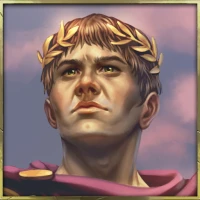






Editor's Choice










